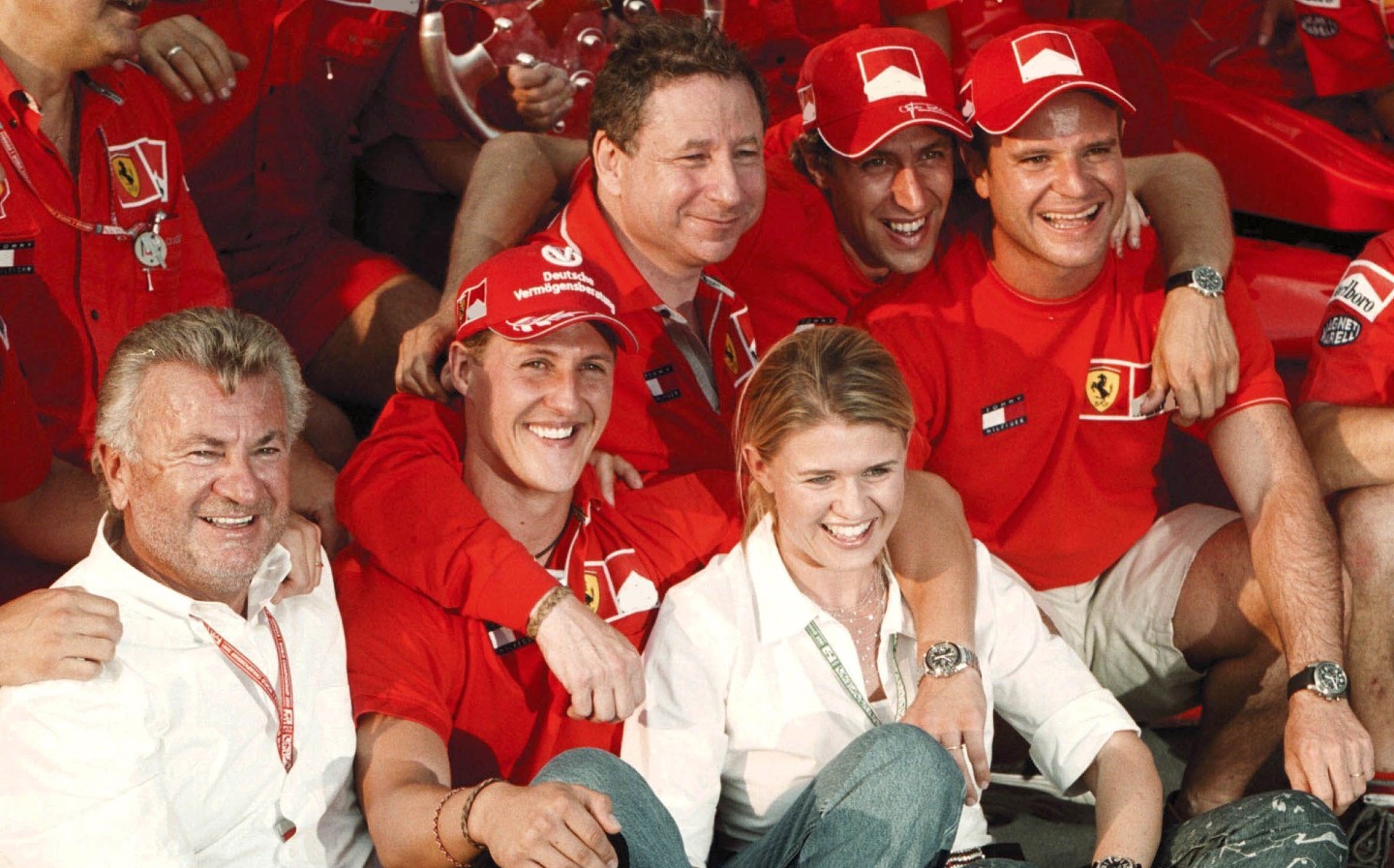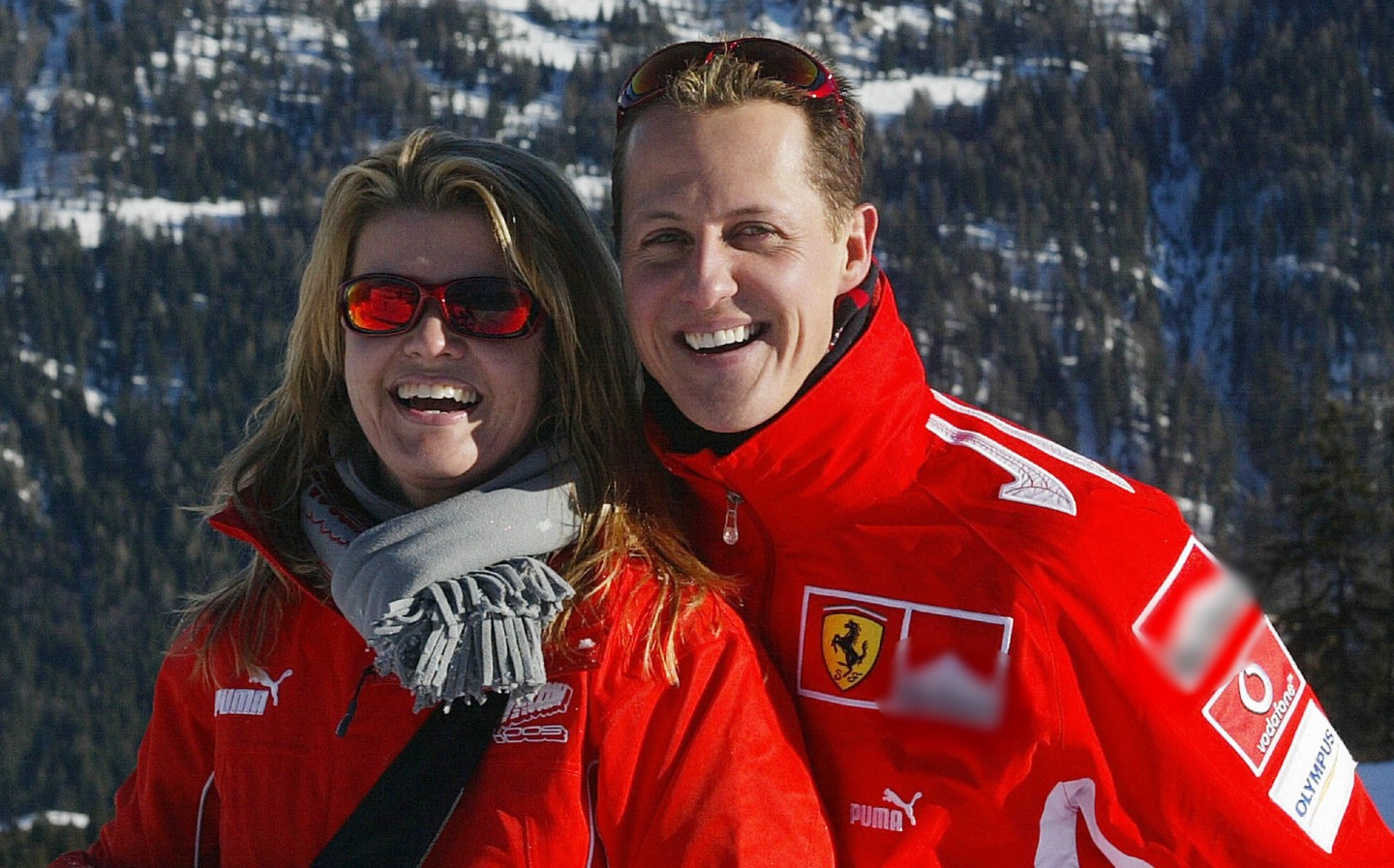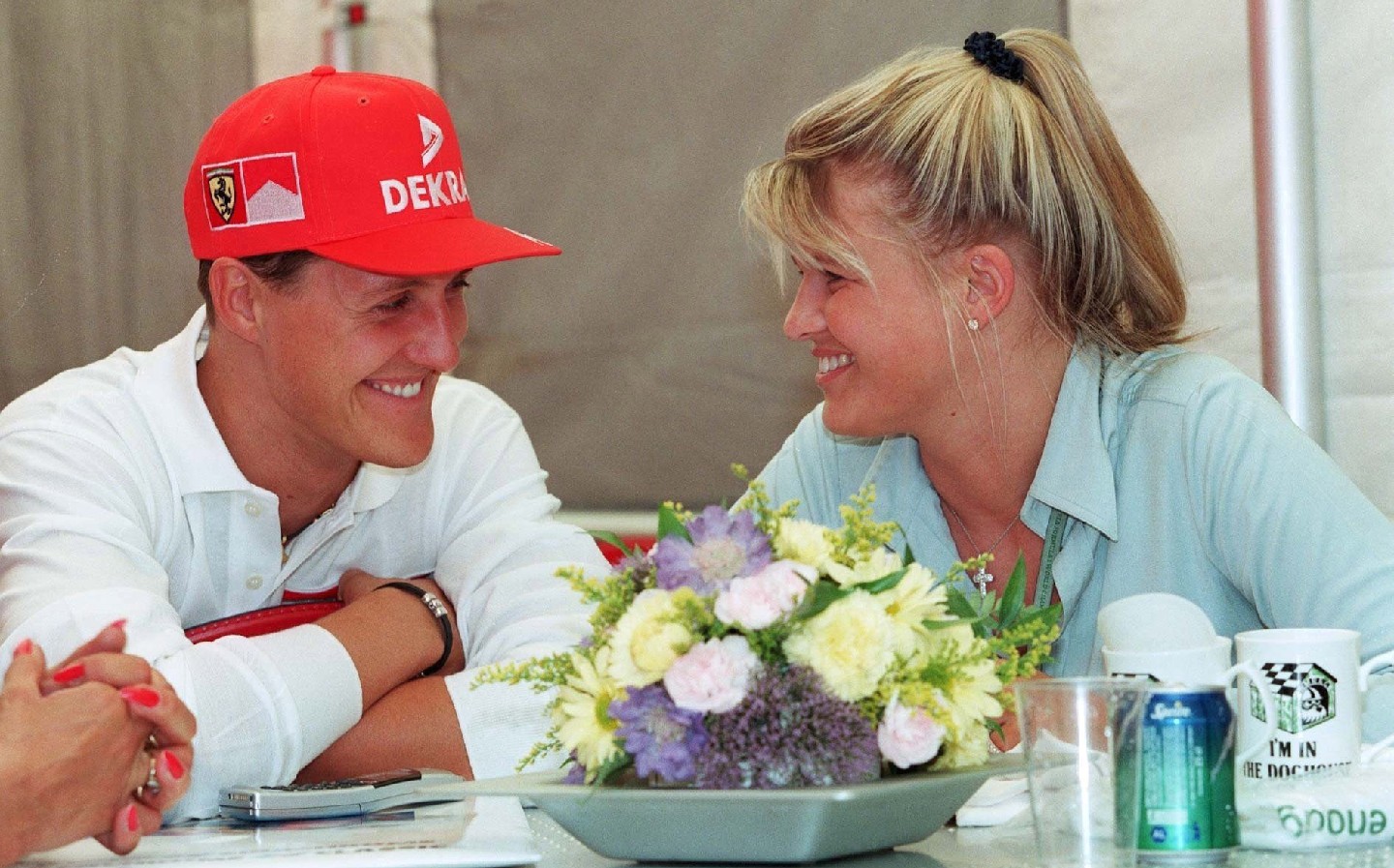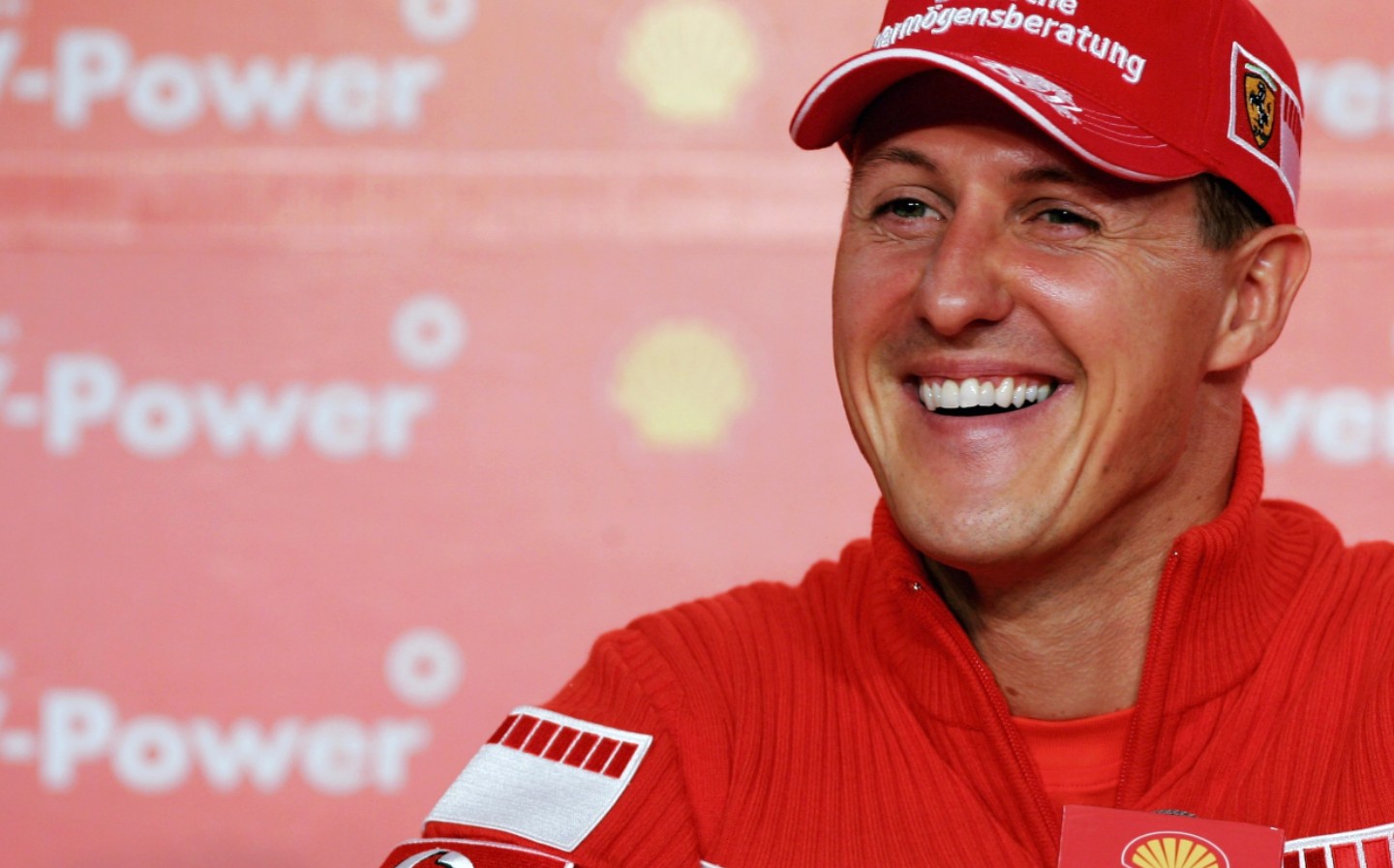Schumacher review: Netflix documentary's revelations ... and its frustrating omissions
A touching portrait of a stellar racing driver and committed family man, though we're left with questions
A NEW documentary from Netflix about the life and career of seven-times F1 champion Michael Schumacher not only conveys his astounding ability behind the wheel of a racing car but also sheds new light on his enigmatic personality and insecurities. On the crucial subject of his fateful 2013 skiing accident, though, the film foregoes even the most fundamental information.
Schumacher has been produced with the co-operation of the Schumacher family and includes interviews from wife Corinna, son Mick, daughter Gina-Maria, brother Ralf and father Rolf, so it should come as no surprise that the legendary driver is conveyed in a fundamentally positive light. Thankfully, though, the film makers and relatives were not afraid to cover the controversies that cast long shadows over an otherwise glittering career.

For example, some British F1 fans are still smarting, 27 years later, after the German seemed to drive into Williams rival Damon Hill at the 1994 title decider in Adelaide, to clinch the championship by a single point. Others remember his clash with Jacques Villeneuve at Jerez in 1997, which once again suggested Schumacher was willing to do anything to win — including driving into his competitors.
In both cases the documentary is unflinching, with critical but fair commentary from those involved. While the viewer is allowed to make up their own minds as to who was to blame and in both cases, it’s fairly easy to conclude that Schumacher was at fault. The film does make it hard to begrudge the German, though.
On the 1997 incident, Ross Brawn, Schumacher’s team manager at Ferrari, explains that Schumacher really believed Villeneuve had been at fault that day; at first, at least: “In his mind, Jacques Villeneuve had hit him. He wasn’t putting on an act — in his head, that’s what happened.”
He added: “Then, when we showed him the video, he realised that that wasn’t the case. And it was one of those moments that Michael had two or three times in his career, where his commitment, his competitiveness, his dedication, just went one step too far.
On the accident at Adelaide, which resulted in Schumacher winning the world championship after both cars retired, Hill goes as far as to suggest he can’t really blame his on-track rival, as he might do the same if the tables were turned.
“Michael did what he had to do to stop me beating him,” said the Brit. “[But] put me in the car in Adelaide, and I’ve got a points advantage, and my rival comes up the inside, what would I do? I don’t know.”
The film makes it clear Schumacher’s default position was that he could never be at fault, with David Coulthard, who was involved in another famous accident with Schumacher, at Spa in 1998, showing his exasperation at Schumi’s pigheadedness: “I said, ‘Surely you must be wrong sometimes.’ And he thought about it for a while and he went, ‘Not that I remember.'” With the passing of time, Coulthard is able to tell the anecdote with a smile on his face.
And the documentary does this so well; show Schumacher’s win-at-all-costs mentally and his unbending belief that he doesn’t make mistakes, but offer enough insight into the driver’s psychology that it’s impossible to feel anything other than respect.
The early part of the film shows where this attitude was forged — on the kart track, where his speed and consistency made him a cut above everyone else. It is revealed that young Schumacher won with a fraction of the budget of his wealthier competitors and using their worn, discarded tyres. We’re left understanding Schumacher’s story is one of an underdog, not a privileged man who was given all the breaks as a youngster.
Perhaps the most surprising revelation is that, despite his success on track — born from both innate speed and the ability to forge a tight team bond (Schumacher knew the names of all his Ferrari mechanics and their wives, and made sure to let the team’s chef know he made the best pasta in the world, which meant everyone worked tirelessly to provide a winning car) — Schumacher was racked with insecurities.
He only really dropped his confident façade when alone with his closest confidants, such as wife Corinna, but cracks did show on occasion — notably when told he had equally Ayrton Senna’s win record.

And according to Brawn, Schumacher lived for the challenge, not the statistics, which is why he switched from Benetton after claiming two driver’s championships to join Ferrari in 1996, hoping to deliver the prancing horse its first world championship since 1979. That was a slow and painful process, and another great revelation of the film is that Ferrari came close to dropping Schumacher in 1999, after three and a half years of failing to deliver on that goal.
The following year Schumi managed it, however, and that was the start of an unprecedented period of dominance from the German, with five back-to-back titles from 2000 to 2004. To the documentary’s great credit, this sensational win streak isn’t dwelt upon — the film makers understand that an untouchable winner does not a good story make.
Unfortunately for the viewer, this accelerated pacing continues into the crucial section about Schumacher’s skiing accident, on December 29, 2013. We’re shown aerial shots of the slopes of Meribel, we hear overlapping news reports from the time, learning only that “Michael Schumacher is in critical condition.” And then we are told by Jean Todt that he had become a “victim of misfortune” and that “Michael and his family’s life turned upside-down.”
Whereas with 2010’s Senna — which remains the high watermark of motor sport documentaries and was clearly an influence on the makers of Schumacher — we hear from Professor Sid Watkins, who treated Ayrton Senna at the scene of his fatal accident at Imola in 1994, about what he did to try and save his patient trackside and later in hospital, with Schumacher there are no interviews with doctors, surgeons or relatives about the type of accident sustained and the treatments he received.
One would be naïve to imagine a family that has been so secretive about Schumacher’s condition since that day would suddenly reveal all, with images or video of the accident (it’s thought Schumacher had a GoPro camera attached to his helmet on the day of the crash) or of him in his current condition, but it is odd that a documentary does not even explain the facts of what happened on the day of the accident.
An alien visiting from another planet, who was learning about Michael Schumacher for the first time via the film, would be left wondering what had happened. Did he hit his head? Did he ski off a cliff? Was there an avalanche? None of this is explained.

Which is even more odd given media reports from the time explained what had happened: Schumacher fell while skiing and suffered a brain injury after hitting his head on a rock. He was wearing a helmet, which likely saved his life, but the trauma was severe. He was airlifted to hospital and placed in a medically-induced coma before undergoing operations to reduce swelling of the brain.
After that, the facts are scant but we know from a Schumacher family statement in 1994 that was out of a coma, and shortly after was transported to the family home in Geneva, where he continues to receive treatment. Simply saying that would have been enough to fulfill the basic expectations of a documentary; Schumacher assumes the viewers know the fundamentals, which may not be the case.
We do hear from Corinna about life now, though: Michael still receives therapy and other treatments with the family still determined to try to improve his condition and make him feel comfortable. His children recall the good times, and how much attention and love they received from their dad when he came home. Mick, who is now a Formula One racing driver himself, is doleful that he can’t share this with his dad, of course.
One conspicuous absence from the film is F1 pundit Martin Brundle, who is uniquely qualified to have a say, given he was the German’s team-mate at Benetton in 1992, and has been brilliantly insightful in past interviews and discussions about Schumacher. And there is a hint of gloss to the picture painted of Michael Schumacher that can only be expected of a story approved by his family and created while he — we assume — continues to fight for his life, and way of life.

But overall we’re treated to a warm, touching and enlightening portrait of Michael Schumacher that works not in spite of the family’s involvement, but because of it. Footage of him dancing at parties, having fun on snowmobiles and sky-diving with Corinna and the kids shows where his heart truly lay towards the end of his F1 career — not behind the wheel but at home. And though it’s frustrating to be given so little information about Schumacher’s current condition, we understand why the family is so protective of him now — because he was so careful to protect them from unwarranted attention.
And just as he made his family feel loved, they now do everything they can to ensure he feels that love today. “Everybody misses Michael,” Corinna explains, “but Michael is here. Different, but he’s here. And that gives us strength, I find.”
#KeepFightingMichael
Schumacher is available to watch now on Netflix.
- If you enjoyed this review of the Netflix Schumacher documentary, you may want to check out our review of the Le Mans ’66 (Ford v Ferrari) movie starring Matt Damon and Christian Bale
- Last year Lewis Hamilton equalled Michael Schumacher’s record of seven F1 world titles — a feat very few thought possible
- Earlier this year we lost F1 commentary legend Murray Walker, who died at the age of 97





